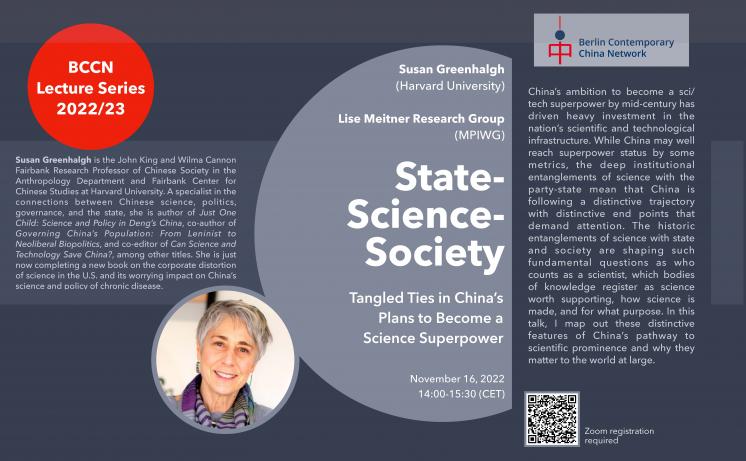State-Science-Society: Tangled Ties in China's Plans to Become a Science Superpower
China’s ambition to become a sci/tech superpower by mid-century has driven heavy investment in the nation’s scientific and technological infrastructure. While China may well reach superpower status by some metrics, the deep institutional entanglements of science with the party-state mean that China is following a distinctive trajectory with distinctive end points that demand attention. The historic entanglements of science with state and society are shaping such fundamental questions as who counts as a scientist, which bodies of knowledge register as science worth supporting, how science is made, and for what purpose. In this talk, I map out these distinctive features of China’s pathway to scientific prominence and why they matter to the world at large.
Biography
About This Series
China’s push to become a leading science power is unprecedented in its speed, scope and, arguably, success. Reactions to China’s rise in global science are dichotomous: some anticipate that science made in China may come to dominate global academia while others deem it impossible to achieve scientific leadership under an authoritarian regime. A focus on rankings and statistics alone is apparently not enough to grasp the origins, characteristics, and the possible futures of China as a science superpower.
This monthly lecture series will bring together fresh empirical insights and intriguing theoretical reflections about the development of the science system in the People’s Republic of China and its global integration. Representing a variety of social science perspectives, our guest speakers will explore the evolution of Chinese science policy, interactions of societal norms and values and academia in the PRC, factors that enable or constrain scientific innovation, the global reception of scientific output and investment from China, the securitization of international collaboration, and much more.

- Presentation
- November 16, 2022
- 00:47:09
State-Science-Society: Tangled Ties in China's Plans to Become a Science Superpower
More
